 This Ngugi Wa Thiong’o story highlights the human cost of progress in developing countries such as post-independence Kenya. Its main themes are exploitation, class differences, identity, loneliness and appearances. A young woman leaves her village in search of a better life in the city. She is poorly educated, and ends up working as a hostess in beer bars. Unhappy with the life, the money she makes and her appearance, she dreams of something better. Cut off from her family and alone in the world, she steals money from a customer and uses it to experience a few minutes of glory. More…
This Ngugi Wa Thiong’o story highlights the human cost of progress in developing countries such as post-independence Kenya. Its main themes are exploitation, class differences, identity, loneliness and appearances. A young woman leaves her village in search of a better life in the city. She is poorly educated, and ends up working as a hostess in beer bars. Unhappy with the life, the money she makes and her appearance, she dreams of something better. Cut off from her family and alone in the world, she steals money from a customer and uses it to experience a few minutes of glory. More…
Archives
Heat
 In this confronting story by Joyce Carol Oates, mischievous eleven-year-old twin girls are brutally murdered by Roger Whipple, a supposedly harmless, mentally challenged man. Major themes are power, cruelty and violent revenge. The twins exercise persuasive power by demanding compliance with their wishes from school friends and cruelly harassing and making fun of Roger. The power theme is emphasized through anecdotes about the girls’ antics and dark humor: We liked it that Rhea and Rhoda had been killed … but we didn’t like it that they were dead; we missed them. In the end revenge, and Roger’s physical power, prevail. More…
In this confronting story by Joyce Carol Oates, mischievous eleven-year-old twin girls are brutally murdered by Roger Whipple, a supposedly harmless, mentally challenged man. Major themes are power, cruelty and violent revenge. The twins exercise persuasive power by demanding compliance with their wishes from school friends and cruelly harassing and making fun of Roger. The power theme is emphasized through anecdotes about the girls’ antics and dark humor: We liked it that Rhea and Rhoda had been killed … but we didn’t like it that they were dead; we missed them. In the end revenge, and Roger’s physical power, prevail. More…
The Most Dangerous Game
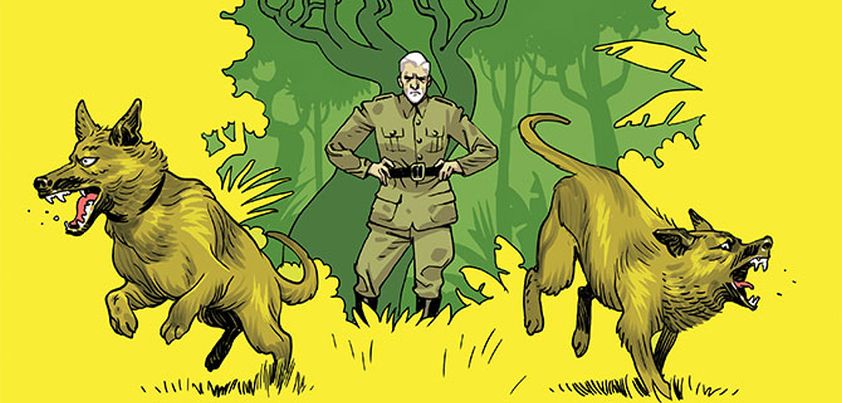 Although written almost a hundred years ago, this seemingly timeless adventure story from Richard Connell is still widely taught in schools. In addition to being an exciting, suspenseful read, one of the reasons for this is the continuing passionate debate about the ethics of hunting for sport. Rainsford the hunter has no regard for the rights or feelings of the animals he kills; Rainsford the hunted clearly thinks otherwise. Note the play on words in the title. Both the ‘game’ Zoroff plays and the ‘game’ he hunts are dangerous. Themes: trophy-hunting, man’s inhumanity to man, violence and cruelty, survival, revenge. More…
Although written almost a hundred years ago, this seemingly timeless adventure story from Richard Connell is still widely taught in schools. In addition to being an exciting, suspenseful read, one of the reasons for this is the continuing passionate debate about the ethics of hunting for sport. Rainsford the hunter has no regard for the rights or feelings of the animals he kills; Rainsford the hunted clearly thinks otherwise. Note the play on words in the title. Both the ‘game’ Zoroff plays and the ‘game’ he hunts are dangerous. Themes: trophy-hunting, man’s inhumanity to man, violence and cruelty, survival, revenge. More…
Sweat
 At its simplest, this story by Zora Neale Hurston is about a cheating, abusive husband who got what was coming to him. Everyone in Delia’s poor black community seems to know about her brutal mistreatment at the hands of husband Sykes. However, nobody offers to help. She finally reaches breaking point, and threatens to go to the “white folks” if he touches her again. Sykes wants Delia’s house and devises a plan to kill her but, in an ironic twist, she manages to turn the tables. Themes: oppression, good vs. evil, hard work vs. laziness, domestic abuse, adultery, courage, greed. More…
At its simplest, this story by Zora Neale Hurston is about a cheating, abusive husband who got what was coming to him. Everyone in Delia’s poor black community seems to know about her brutal mistreatment at the hands of husband Sykes. However, nobody offers to help. She finally reaches breaking point, and threatens to go to the “white folks” if he touches her again. Sykes wants Delia’s house and devises a plan to kill her but, in an ironic twist, she manages to turn the tables. Themes: oppression, good vs. evil, hard work vs. laziness, domestic abuse, adultery, courage, greed. More…
Bullet in the Brain
 This Tobias Wolff story features a protagonist who is so unlikable that it seems a relief when a bank robber silences him. Sarcastic to the point of being obnoxious, Anders provides some humorous moments (Love the comment about The Killers!) before getting the richly deserved Bullet in the Brain. Unlike Bierce’s Occurrence at Owl Creek Bridge, where the protagonist enjoys an uplifting moment-of-death experience, Anders re-lives a childhood baseball game. The highlights of his life were the simple pleasures of youth (such as enjoying the musical quality of a strange accent), before losing his innocence to conceit, disillusionment and cynicism. More…
This Tobias Wolff story features a protagonist who is so unlikable that it seems a relief when a bank robber silences him. Sarcastic to the point of being obnoxious, Anders provides some humorous moments (Love the comment about The Killers!) before getting the richly deserved Bullet in the Brain. Unlike Bierce’s Occurrence at Owl Creek Bridge, where the protagonist enjoys an uplifting moment-of-death experience, Anders re-lives a childhood baseball game. The highlights of his life were the simple pleasures of youth (such as enjoying the musical quality of a strange accent), before losing his innocence to conceit, disillusionment and cynicism. More…
A Vendetta
 The French writer Guy de Maupassant is said to be one of the fathers of the modern short story. This story is about an old widow who lives in a small village in Southern Italy with her only son and his dog. One evening, the son is murdered. The mother is so saddened by this that she swears a vendetta against the killer. Every day, she sits by the window and wonders how she, a weak old woman with no one to help her, can carry out her promise. Finally, she comes up with an idea and has her revenge. More…
The French writer Guy de Maupassant is said to be one of the fathers of the modern short story. This story is about an old widow who lives in a small village in Southern Italy with her only son and his dog. One evening, the son is murdered. The mother is so saddened by this that she swears a vendetta against the killer. Every day, she sits by the window and wonders how she, a weak old woman with no one to help her, can carry out her promise. Finally, she comes up with an idea and has her revenge. More…
Killings
 At a simplistic level this provocative story by Andre Dubus suggests that, given the right circumstances, almost anyone could become a cold-blooded killer. On one hand we have Strout (aggressive, violent and possibly psychologically disturbed); on the other, Matt (a peaceful, model citizen). Matt’s wife suffers untold emotional pain as she regularly encounters Strout (their son’s murderer) while he walks around town on bail. Rather than wait for the trial, Matt and his redneck friend Willis make elaborate plans for a killing of their own. Themes: love/marriage, murder, grief, justice, revenge, morality. More…
At a simplistic level this provocative story by Andre Dubus suggests that, given the right circumstances, almost anyone could become a cold-blooded killer. On one hand we have Strout (aggressive, violent and possibly psychologically disturbed); on the other, Matt (a peaceful, model citizen). Matt’s wife suffers untold emotional pain as she regularly encounters Strout (their son’s murderer) while he walks around town on bail. Rather than wait for the trial, Matt and his redneck friend Willis make elaborate plans for a killing of their own. Themes: love/marriage, murder, grief, justice, revenge, morality. More…
The Landlady
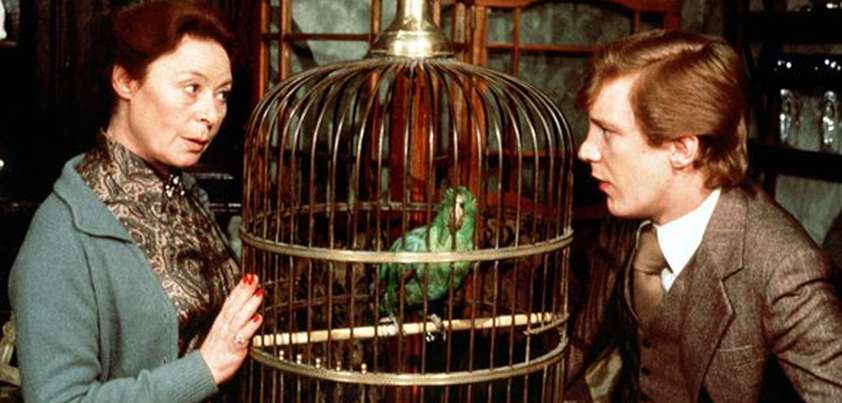 The theme of this Roald Dahl story is the commonly adopted things aren’t always as they seem. What sets it apart is the way Dahl gradually builds tension, starting with his descriptions of the weather and outdoor setting, then moving on to the supernatural before young Billy even meets the “motherly” landlady. (Each word was like a large black eye staring at him through the glass, holding him …) From then on, almost every step involves dramatic irony. The reader can see that something is wrong, which softens the impact of the horror ending, but naïve Billy remains frustratingly oblivious. More…
The theme of this Roald Dahl story is the commonly adopted things aren’t always as they seem. What sets it apart is the way Dahl gradually builds tension, starting with his descriptions of the weather and outdoor setting, then moving on to the supernatural before young Billy even meets the “motherly” landlady. (Each word was like a large black eye staring at him through the glass, holding him …) From then on, almost every step involves dramatic irony. The reader can see that something is wrong, which softens the impact of the horror ending, but naïve Billy remains frustratingly oblivious. More…
The Return
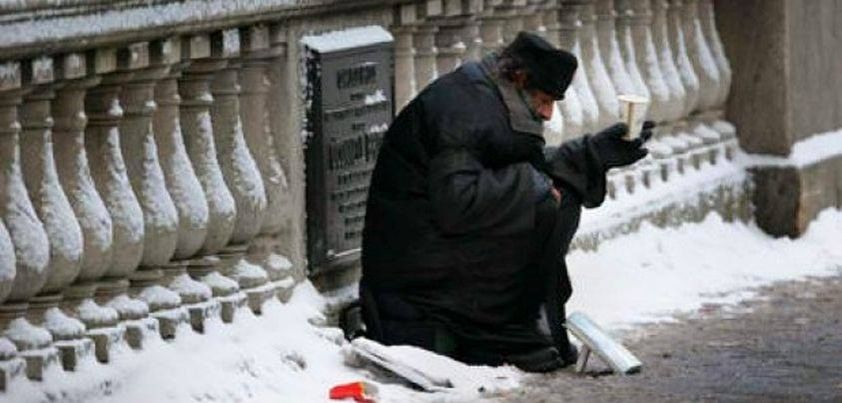 Today we have a story by Argentinean writer Fernando Sorrentino. At first, it reads like a typical ‘campfire’ horror story. A man looking out his window witnesses a mean neighbour accidentally causing the death of an old beggar. Later, he sees the dead beggar return in the form of a newborn baby boy. When the boy is older, he causes the death of the man who killed him and then suddenly disappears. The author has cleverly created the character of the narrator so that, if readers look a little harder, they might question if this is what really happened. More…
Today we have a story by Argentinean writer Fernando Sorrentino. At first, it reads like a typical ‘campfire’ horror story. A man looking out his window witnesses a mean neighbour accidentally causing the death of an old beggar. Later, he sees the dead beggar return in the form of a newborn baby boy. When the boy is older, he causes the death of the man who killed him and then suddenly disappears. The author has cleverly created the character of the narrator so that, if readers look a little harder, they might question if this is what really happened. More…
A Problem
 In this Anton Chekhov story, wealthy family members consider what to do about a nephew who has issued a false promissory note (IOU) in one of their names. Do they repay the debt to preserve family honor and avoid a scandal, or let justice take its course? On learning of the decision, the unscrupulous young man uses it to extort further money from an uncle trying to help him and, in the process, grudgingly admits an unfortunate aspect of his character. Themes: crime and consequences; justice/civic duty vs. family honor; nature vs. nurture, hedonism of the young upper-class, pride, despair. More…
In this Anton Chekhov story, wealthy family members consider what to do about a nephew who has issued a false promissory note (IOU) in one of their names. Do they repay the debt to preserve family honor and avoid a scandal, or let justice take its course? On learning of the decision, the unscrupulous young man uses it to extort further money from an uncle trying to help him and, in the process, grudgingly admits an unfortunate aspect of his character. Themes: crime and consequences; justice/civic duty vs. family honor; nature vs. nurture, hedonism of the young upper-class, pride, despair. More…
The Purloined Letter
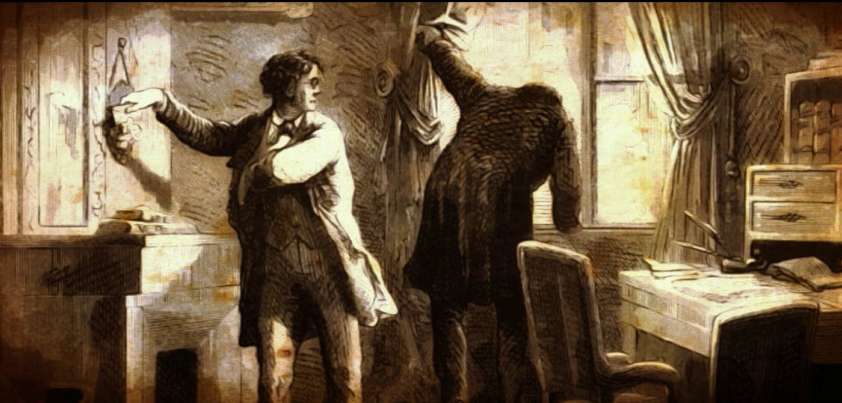 Edgar Allan Poe is famous for his horror stories. However, only about fifteen of his sixty or so stories are of this kind.He is also widely recognized as the “father” of modern detective fiction thanks to his three tales featuring the Chevalier [Sir] Auguste Dupin. In a manner later emulated by the likes of Sherlock Holmes and Hercule Poirot, Dupin succeeds where eminent policemen fail… in this case, simply by recognizing that the best place to hide something important is in plain sight. Themes: blackmail, political manipulation, deception, linear (scientific) vs. lateral thinking. More…
Edgar Allan Poe is famous for his horror stories. However, only about fifteen of his sixty or so stories are of this kind.He is also widely recognized as the “father” of modern detective fiction thanks to his three tales featuring the Chevalier [Sir] Auguste Dupin. In a manner later emulated by the likes of Sherlock Holmes and Hercule Poirot, Dupin succeeds where eminent policemen fail… in this case, simply by recognizing that the best place to hide something important is in plain sight. Themes: blackmail, political manipulation, deception, linear (scientific) vs. lateral thinking. More…
A Jury of Her Peers
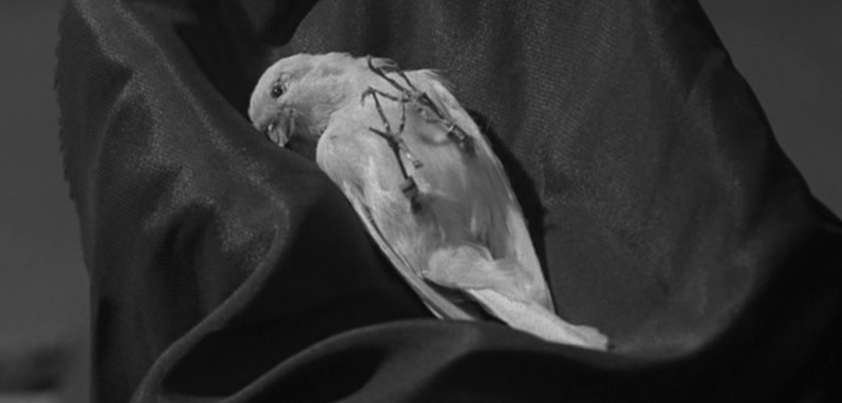 The three dominant themes of this story by Susan Glaspell are feminism (gender roles), deception and justice. Men investigating a farmer’s murder bring two of their wives to the scene of the crime (his farmhouse) to collect clothing, etc. for the suspect (the farmer’s wife) while in jail. Ironically, although the men mock the women’s ability to contribute to the investigation, the wives find evidence that would convict the suspect. They then face a moral dilemma. A jury of men would not understand the suspect’s suffering. Would justice be served by proving her guilt? More…
The three dominant themes of this story by Susan Glaspell are feminism (gender roles), deception and justice. Men investigating a farmer’s murder bring two of their wives to the scene of the crime (his farmhouse) to collect clothing, etc. for the suspect (the farmer’s wife) while in jail. Ironically, although the men mock the women’s ability to contribute to the investigation, the wives find evidence that would convict the suspect. They then face a moral dilemma. A jury of men would not understand the suspect’s suffering. Would justice be served by proving her guilt? More…
The Red-Headed League
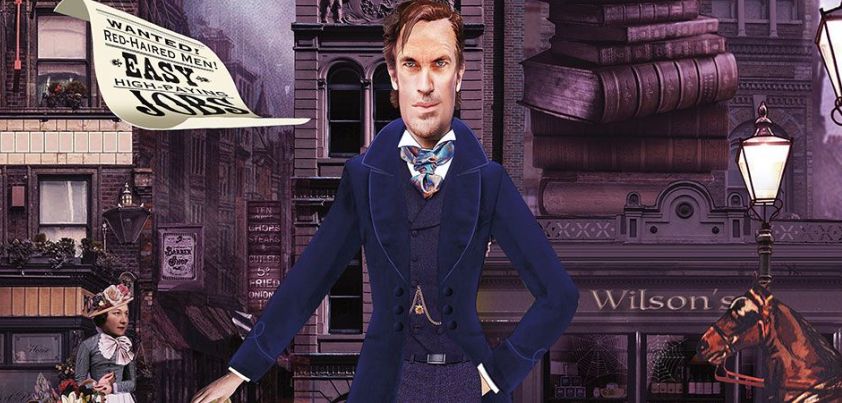 A common theme in most detective stories is superior observation skills and deductive reasoning. A defining feature of Arthur Conan Doyle’s Red-Headed League is the way the facts presented by the gullible Wilson appear so bizarre to Watson as to defy interpretation. This prompts Holmes’s to quip: Omne ignotum pro magnifico [we exaggerate the importance of the unknown]. Once he dismisses the Red-Headed League as a distraction, identifying the crime in progress becomes a straightforward matter for the great detective. Other themes include deception (appearance vs. reality), gullibility, greed (of both the criminals and Wilson), crime and justice. More…
A common theme in most detective stories is superior observation skills and deductive reasoning. A defining feature of Arthur Conan Doyle’s Red-Headed League is the way the facts presented by the gullible Wilson appear so bizarre to Watson as to defy interpretation. This prompts Holmes’s to quip: Omne ignotum pro magnifico [we exaggerate the importance of the unknown]. Once he dismisses the Red-Headed League as a distraction, identifying the crime in progress becomes a straightforward matter for the great detective. Other themes include deception (appearance vs. reality), gullibility, greed (of both the criminals and Wilson), crime and justice. More…
The Duchess and the Jeweller
 This story by Virginia Woolf reflects the period in which the moral decadence of British aristocracy led to its loss of respect among the people and the rising influence of newly rich commoners. It also shows how both groups could be equally ruthless in achieving their goals. Extensive use is made of symbolism, examples of which include: 1) The portrait of the Jeweler’s mother, representing his conscience; 2) Some fake (rotten at the core) pearls, representing the Duchess’s shallow, dishonorable character; and 3) The Jeweler’s purported love for the Duchess’s daughter, representing his desire for respectability and higher social status. More…
This story by Virginia Woolf reflects the period in which the moral decadence of British aristocracy led to its loss of respect among the people and the rising influence of newly rich commoners. It also shows how both groups could be equally ruthless in achieving their goals. Extensive use is made of symbolism, examples of which include: 1) The portrait of the Jeweler’s mother, representing his conscience; 2) Some fake (rotten at the core) pearls, representing the Duchess’s shallow, dishonorable character; and 3) The Jeweler’s purported love for the Duchess’s daughter, representing his desire for respectability and higher social status. More…
The Cone
 When the manager of an iron-works takes an artist friend he knows to be sleeping with his wife on a tour of the furnaces, it seems inevitable that one of them will meet with an unfortunate ‘accident’. The power of this H. G. Wells story lies in its gradual build-up of suspense and vivid descriptions of the industrial landscape and smelting process. Major themes are adultery, revenge, violence and (for modern-day readers) environmental degradation. Ironically, when the story was published in 1895, readers would have identified the fourth theme as something akin to ‘progress’. More…
When the manager of an iron-works takes an artist friend he knows to be sleeping with his wife on a tour of the furnaces, it seems inevitable that one of them will meet with an unfortunate ‘accident’. The power of this H. G. Wells story lies in its gradual build-up of suspense and vivid descriptions of the industrial landscape and smelting process. Major themes are adultery, revenge, violence and (for modern-day readers) environmental degradation. Ironically, when the story was published in 1895, readers would have identified the fourth theme as something akin to ‘progress’. More…
The Hit Man
 T. C. Boyle’s The Hit Man is a clever satire of the short story genre. Written in short paragraphs under sub-headings, the story contains all the necessary elements of a short story. What makes it unusual is that Boyle is able to provide a meaningful account of his protagonist’s entire life (boyhood, adolescence, courtship, death of parents, ‘career’, marriage, family, retirement, death… and even dislike of peas!) in less than 1,200 words. He also manages to deal with some serious issues (bullying, schoolyard violence, judicial system failure, gratuitous murder, glamorized crime and death) along the way. More…
T. C. Boyle’s The Hit Man is a clever satire of the short story genre. Written in short paragraphs under sub-headings, the story contains all the necessary elements of a short story. What makes it unusual is that Boyle is able to provide a meaningful account of his protagonist’s entire life (boyhood, adolescence, courtship, death of parents, ‘career’, marriage, family, retirement, death… and even dislike of peas!) in less than 1,200 words. He also manages to deal with some serious issues (bullying, schoolyard violence, judicial system failure, gratuitous murder, glamorized crime and death) along the way. More…
The Chosen Vessel
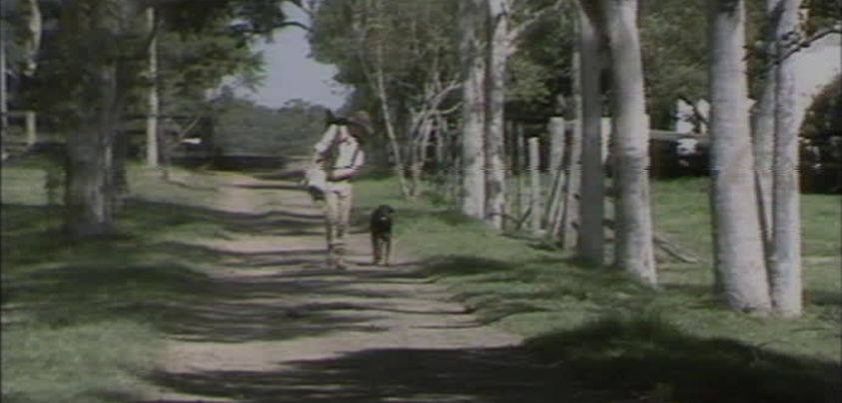 This story by Barbara Baynton paints a graphic picture of the isolation and dangers faced by women living in ‘outback’ Australia during the 19th century. A ‘swagman’ traveling the countryside looking for work visits a woman on a farm whose husband is away. She does not like the way he looks at her, and locks herself and her baby in their house. The man is about to break in when they hear a horse rider coming. The woman runs outside and calls for help. However, when the horse rider hears and then sees her, he races away in fright. More…
This story by Barbara Baynton paints a graphic picture of the isolation and dangers faced by women living in ‘outback’ Australia during the 19th century. A ‘swagman’ traveling the countryside looking for work visits a woman on a farm whose husband is away. She does not like the way he looks at her, and locks herself and her baby in their house. The man is about to break in when they hear a horse rider coming. The woman runs outside and calls for help. However, when the horse rider hears and then sees her, he races away in fright. More…
Where Are You Going, Where Have You Been?
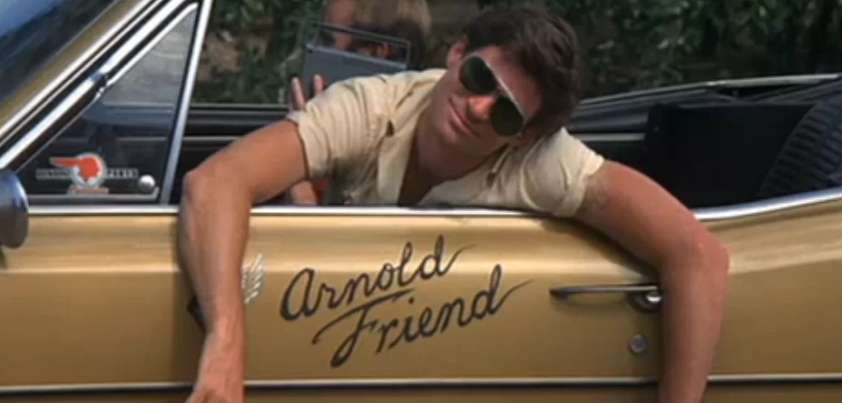 The plot of this award-winning story by Joyce Carol Oates in a nutshell: attractive, self-absorbed, rebellious teen under Why can’t you be like your big sister? pressure meets a predatory psychopath with, one imagines, predictable results. What sets the story apart is the way Oates, using dialogue alone, transforms a cautionary tale for young women into a psychological thriller that gradually develops into a horror story. Themes include search for identity, independence, sexuality and control, appearance vs. reality, malevolence, psychological manipulation and (if you believe Connie really sacrificed herself for her family), self-sacrifice. More…
The plot of this award-winning story by Joyce Carol Oates in a nutshell: attractive, self-absorbed, rebellious teen under Why can’t you be like your big sister? pressure meets a predatory psychopath with, one imagines, predictable results. What sets the story apart is the way Oates, using dialogue alone, transforms a cautionary tale for young women into a psychological thriller that gradually develops into a horror story. Themes include search for identity, independence, sexuality and control, appearance vs. reality, malevolence, psychological manipulation and (if you believe Connie really sacrificed herself for her family), self-sacrifice. More…
The Ghost upon the Rail
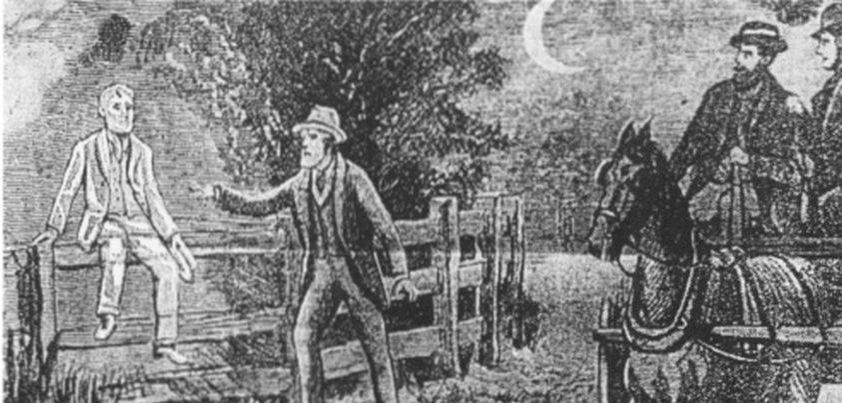 This supposedly true story by John Lang is set in the early 1800s. John Fisher had come to Australia as a convict. He worked hard, won his freedom and became rich. One day a neighbor tells everyone that Fisher has returned to England. A year later, he says that Fisher has written asking him to sell all he owns and send the money to him. According to this version, at about the same time three men (one a policeman) are returning home late one night. Sitting on a rail beside the road is Fisher’s ghost. This spoils the neighbor’s plan. More…
This supposedly true story by John Lang is set in the early 1800s. John Fisher had come to Australia as a convict. He worked hard, won his freedom and became rich. One day a neighbor tells everyone that Fisher has returned to England. A year later, he says that Fisher has written asking him to sell all he owns and send the money to him. According to this version, at about the same time three men (one a policeman) are returning home late one night. Sitting on a rail beside the road is Fisher’s ghost. This spoils the neighbor’s plan. More…
A Municipal Report
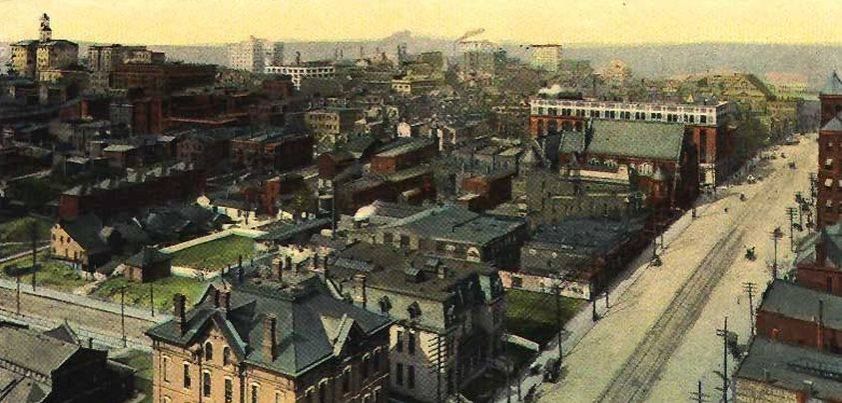 W. S. Porter (aka O. Henry) wrote over 600 short stories, of which some critics consider this to be one of the best. The plot involves what happens between the unnamed narrator, three main characters, and a torn dollar bill that keeps coming back to its original owner. The characters: Azalea Adair, a self-educated, gentle lady of the old South; Major Caswell, a cruel husband who treats her badly; and Uncle Caesar, a kind African-American man with a royal bearing who tries to help Azalea. Themes: pretense, pride, change, domestic violence, loyalty, self-learning and the power of imagination. More…
W. S. Porter (aka O. Henry) wrote over 600 short stories, of which some critics consider this to be one of the best. The plot involves what happens between the unnamed narrator, three main characters, and a torn dollar bill that keeps coming back to its original owner. The characters: Azalea Adair, a self-educated, gentle lady of the old South; Major Caswell, a cruel husband who treats her badly; and Uncle Caesar, a kind African-American man with a royal bearing who tries to help Azalea. Themes: pretense, pride, change, domestic violence, loyalty, self-learning and the power of imagination. More…